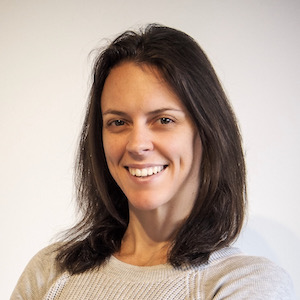Our amazing speakers for RubyConf AU 2023:

Samuel Williams
Asynchronous Rails
The fiber scheduler presents new opportunities for building scalable and concurrent Ruby programs. However, Rails has traditionally been a request-per-process or request-per-thread framework. We will give a brief introduction to the fiber scheduler, and look at how we are evolving Rails and Ruby in general to take advantage of request-per-fiber using Falcon.
About Samuel
Samuel Williams is a Ruby core team member and the creator of Falcon, an open source web server which uses fibers for improved concurrency. He is passionate about programming languages and wants to build systems that are both easy to use and scalable by default. When he is not working as a freelance consultant solving difficult problems, he enjoys gardening, woodworking, and cooking with his two children.

Yuji Yokoo
Megaruby - mruby/c on Sega Mega Drive
With mruby/c, it's now possible to run Ruby code on Sega Mega Drive!
I will show you how to get started, what makes Sega Mega Drive a great platform for mruby/c, and some of the challenges I faced.
This presentation will be delivered on a Mega Drive unit.
About Yuji
Yuji is a software developer based in Adelaide, Australia. He is originally from Tokyo, Japan. He used to write Win32 desktop applications until he discovered Ruby.

Shaila Man
Neurodiversity - Shifting the Paradigm from Silent Disability to Super Power
Is thinking different such a bad thing? ...Let's look at the evolutionary theory behind neurodiversity. Would the human race even exist today if Neurodiversity wasn't engineered into the population? the answer is - Probably not! Why is that?
How and why do modern teams benefit by actively including neurodiversity? More and more workplaces, such as the Australian Defence Force, are actively seeking out and including neurodiversity? They're offering supportive working environments to unlock their super powers!
Are you unknowingly suppressing the super powers of your neurodiverse colleagues by forcing them to conform to neurotypical expectations? Are you aware of their daily struggles due to workplaces and processes being built for neurotypicals? eg. do you offer pairing opportunities to help with task paralysis? or quiet working spaces? or attention to office lighting? or recorded Zoom meetings, etc? The chances are, if they are female - they might not be aware of their own needs! Did you know that the average age for ADHD diagnosis for anyone born male is single digits, and goes up to 45 for anyone born female?!
Let's encourage more open conversations, and educate ourselves and our peers. Neurodiversity is not a disability - it's a super power from being wired differently. The benefits can be incredible when we become inclusive!
About Shaila
Senior Software Engineer with Culture Amp. Single mother of three teenager daughters, a Weimaraner, a Ragdoll, and a very pathetic looking basil plant. Huge advocate for diversity, equity and inclusion, especially in the tech sector. Director of MusesCodeJS, which is a not-for-profit helping women and non-binary across Australia enter into engineering careers. ADHD and ASD positive, and will not stop talking about it! ...and finally known for having a keen interest in breeding rare breed chickens!

Pat Allan
Upgrading the Ruby Community
The Ruby community has a reputation across the wider tech industry for being a bit special - opinionated, yes, but also warm and welcoming. Our conferences, our events, even our code is so often a bit more thoughtful and a bit more fun, and the legacy of this has spread beyond Ruby to other language communities such as Elixir and Rust. We have every reason to be proud… yet, we should be wary of resting of our laurels.
And when we look at the broader world - with pandemics, wars, and the devastation of the climate emergency - well, it's easy to become despondent, or to shut that out and focus on the code. But instead, we should tap into that special community vibe that has nurtured us, and take a step forward in having a broader impact. So what could that look like?
To understand what we can (and perhaps should) do, we must understand what has been done already: this session will cast a critical eye on our industry, pointing out missteps and missed perspectives, as well as looking at what has been done elsewhere to make lasting, positive changes. With that foundation set, we will then talk through several recommendations on what meaningful action for software developers can be, as well as possible guidelines to help each other critique, share and refactor our actions to have even greater impact.
About Pat
Pat is a gelato connoisseur, pancake chef, and recovering events organiser, but most often is focused on web and Ruby development. He has had the pleasure of working with many talented development teams as a Ruby contractor, and written open source Ruby libraries such as Thinking Sphinx, Gutentag, and Combustion. Lately he has been learning far too much about calendar protocols as part of releasing Calm Calendar.

Rhiana Heppenstall
But, you don't look Autistic
Put yourself into the eyes of someone with autism… wait that's not how that goes, metaphors are hard. As someone who grew up in an autistic house, I knew we were different, but not why and what to do about it. After stumbling through life, here's what I'd like to share about autism. Wait, shoes!
An in depth look into autism and how people with autism function in the workplace.
This talk goes through:
Personal history and experiences
- I've been diagnosed for 15 years and majored psychology at university to learn more
How autism is diagnosed including criteria and levels of autism
- Including the history of autism
- Debunking some common myths and stereotypes
Strengths and weaknesses
- Real life min/maxing
Workplace consideration and accommodations
- Asking people what they need and believing them helps everyone
I'm hoping by sharing my experiences you'll be able to gain some insight on how to help others, or yourself if you identify with what I've been saying a little too much.
About Rhiana
Rhiana is a front end developer with a focus on accessible UX and design based in Melbourne. With a background in educational psychology Rhiana made the move to programming 10 years ago after attending a Rails Installfest. Combining her skill sets, Rhiana has a passion for making software the is easy for everyone to use and understand. When Rhiana isn't working you can often see her at a meetup or on the stage sharing her knowledge. Otherwise down at the local beach, park or zoo with her kids.

Julián Pinzón Eslava
All you need is Rails (Engines) - Compartmentalising your Monolith
As much as Rails is all in on Convention over Configuration, there comes a point where there is just so much code, such intricate relationships between classes and such complex business requirements that conventions don't seem to fit anymore. It seems like the only solution is to abandon the Majestic Monolith and use micro services.
However, there is an answer to this. An answer that's been there for a very long time, right under our noses. One that allows Ruby on Rails developers to keep growing a beautiful, sustainable and scalable Monoliths and ride with them to the sunset.
The answer is Rails Engines.
Like… Devise or Spree?
Not quite. In this talk you'll learn a whole new perspctive on Rails Engines; a much lighter and leaner way to use them that allow teams to break up their app into meaningful modules without losing the beauty of Rails' conventions. Sprinkle in the Packwerk Gem by Shopify for the perfect combo to scale your domain and your team.
About Julián
Musician, Audio Engineer, Software Engineer and Ruby lover. Julián is a self-taught Software Engineer that has worked for Y Combinator startups and large consumer applications like Money by Afterpay and Cash App.

Prakriti Mateti
REACT to Imposter Syndrome
70% of people worldwide have felt like an imposter at some point in their career. 46% respondents to a women-in-tech survey agreed that help overcoming imposter syndrome would make them happier and more successful. Do you worry sometimes that you're not as smart as the other people in your organisation? Or that you won't be able to keep up and they'll find out that you don't really belong there? Do you stress out about living up to the expectations of the people you manage?
People working in tech, including those in leadership positions, often struggle to overcome prejudice and lack of privilege but still end up feeling like they don't belong, like they are a fraud, even when they're achieving success and making an impact. Imposter syndrome can affect people at any stage in their career - whether they're an intern or in a senior leadership or executive role.
In this talk I'll go over personal experiences with imposter syndrome and practical strategies I've developed that anyone can apply to banish imposter thoughts and prevent them from getting in the way of your success, career progression, mental health, and happiness at work. An easy to remember acronym (REACT) with 5 realistic steps you can take away and practice can help you create a more accurate representation of your performance. You can take these steps away for yourself, or if you are a people leader, use them to help coach your people through the confusing world of imposter syndrome.
About Prakriti
Prakriti Mateti is a Director of Engineering. She cares deeply about diversity, inclusion, and equity in tech, code quality, engineering culture, and what makes teams work well together. Prakriti loves travelling and food, experimenting with different cuisines and cultures. She likes to read, conduct workshops, present talks, jumps off a plane or high building occasionally, and dreams of getting a pilot license some day and buying her own airplane (if she can overcome her Netflix addiction).

Hilary Stohs-Krause
How to Make Your Website Not Ugly - Basic UX for Programmers
If you're a programmer who has ever found themselves inadvertently (perhaps unwillingly!) straddling the line between design and code, this is the talk for you.
Even with zero design training or background, there are numerous small, simple and practical ways you can vastly improve the look and usability of a website.
In this talk, we'll explore 10 of them together, using research and proven solutions to see how the impact as a whole for both clients and users is greater than the sum of its parts.
About Hilary
Hilary Stohs-Krause is VP and senior software developer at Rails-based dev shop Ten Forward Consulting in Madison, WI, USA. She's passionate about the intersection of tech, entrepreneurship and social justice, and spends a lot of her free time volunteering with different community organizations. She became obsessed with plants during the pandemic, and will read any fantasy or sci-fi she can get her hands on.

Nate Berkopec
How Puma Works
Have you ever wondered how Puma (or other webservers) work? Let's explore the internals of how a pre-forking webserver like Puma buffers and processes requests, what Rack is and how Puma uses it to interact with Rails, and how Puma's multi-threaded and parallel design works in practice.
About Nate
Nate is the author of The Complete Guide to Rails Performance, Sidekiq in Practice and The Rails Performance Apocrypha. His workshops on Rails performance have been attended by hundreds of developers around the world. He maintains Puma, the most popular Ruby webserver.

Coraline Ada Ehmke
The World Set Free
In an age of algorithmic manipulation, surveillance capitalism, privacy erosion, rising fascism, and impending climate disaster, it's easy to fall prey to despair, to grimly accept our slide into an inevitable dystopian future. But there is another way. The philosophy of techno-optimism challenges us to imagine alternate futures in which technology helps promote broad social good. This talk applies a literary lens, by way of an early 20th century "future history" by H. G. Wells, to explore our evolving relationship with world-changing technologies, and help us imagine — and build toward — a future we can all not just survive in, but truly thrive in.
About Coraline
A 25-year veteran of software engineering, Coraline Ada Ehmke has worked for over a a decade at the intersection of technology and social justice. She is the creator of Contributor Covenant, the first and most popular code of conduct for open source communities, and the Hippocratic License, an innovative ethical open source license designed to promote and protect human rights. Coraline co-founded the Organization for Ethical Source and currently serves as its Executive Director.

Jemma Issroff
Implementing Object Shapes for CRuby
The Ruby 3.2 release includes a new technique for for representing objects' properties that can increase cache hits in instance variable lookups, decrease runtime checks, and improve JIT performance. This technique is called "Object Shapes." In this talk, we'll learn how object shapes work, why we implemented them for Ruby 3.2, and interesting implementation details.
If you're curious to learn more about Ruby internals, or how instance variables work, this talk is for you!
About Jemma
Jemma Issroff works on Shopify's Ruby Infrastructure team. In 2022, she implemented object shapes in CRuby alongside Aaron Patterson. She is also a co-founder of WNB.rb, a women and non-binary Ruby community, and a co-host on The Ruby on Rails Podcast.

Fiona McCawley
Encrypted Search Party
Recently I've been working in Rails applications where protecting sensitive data is a priority. But keeping data secure sometimes comes at the cost of utility. The types of queries you can execute can be limited.
In this talk, I'll share what I've been learning about application level encryption, and an encryption scheme called Order Revealing Encryption (ORE).
ORE enables querying capabilities while still keeping data encrypted when in use. I'll be demonstrating ORE's capabilities using a toy ORE library that I have built in Ruby.
About Fiona
After working in technical support roles in Audio Visual and IT for over ten years, I decided to switch careers to be a developer. I completed a General Assembly coding bootcamp and have been working as a developer for the last 5 years. I'm currently a Software Engineer at CipherStash.

Tim Riley
Hanami 2 - New Framework, New You
Years in the making, Hanami 2.0 is out! This release brings new levels of polish and power to a framework you can use for Ruby apps of all shapes and sizes.
Come along to discover what goes into building a new Hanami app, the principles that underpin the framework, and how they just might change the way you work with Ruby altogether.
About Tim
Tim is a core team member of Hanami, dry-rb and rom-rb, and a Principal Engineer at Buildkite. He's been writing Ruby for over 20 years and still loves it! He works to bring the joy of Ruby to writing real, maintainable apps of all shapes and sizes.

Colleen Lavin
A People Pleaser's Guide to Salary Negotiation
Negotiating salaries is hard. It's harder if you always want people to like you. If you fall behind your peers and don't reach your full earning potential.
This talk demystifies negotiation and empowers the attendees to earn as much as their peers while staying true to their personality.
About Colleen
Colleen Lavin is a Developer Advocate at Particle and a recovering people pleaser. She is a hardware geek, a bookworm, and a fervent supporter of inclusive technical communities. When she is playing with robots or sitting in front of a computer you can usually find her lost in the woods.

Geoffrey Donaldson
Aussie Internet - How we learned to stop fearing the NBN and love the SPA
Having performant queries means nothing if your customers can't load them. Slow internet is a reality for many Aussies, especially in rural areas. This is even more challenging when building interactive data-visualisation tools. Learn how we adopted modern web tech to deliver, even when NBN doesn't.
About Geoffrey
Geoffrey has been developing customer-centric apps for over 2 decades. As the CTO of Black Box Co, he is helping to empower people by simplifying data. While afk, you'll find him tracking down the best ramen in town, and trying to break escape room records with his partner in crime, Caitlin.

Igor Kapkov
Testing in Production: there is a better way
Testing in Production is a common CI/CD practice nowadays. However, feature flags and canary deployments can only get you so far. This talk will walk you through the Branch By Abstraction pattern and the tools to give you confidence when shipping your code to production because we should be able to move fast and break nothing.
About Igor
Igor (he/him) is the founder of Visible Light, a developer tool that helps teams move faster and with confidence. He is an experienced CTO who worked with governments, fintech, e-commerce and social networks, helping them scale. Former Homebrew Core Maintainer and active open-source contributor. Finalist of Finnies 2022 in "Emerging Fintech Leader of the Year".

Sameera Gayan
Mentoring - For me or not for me, that is the question
Mentoring - For me or not for me, that is the question!
"Tell me and I forget, teach me and I remember, involve me and I learn." – Xunzi (Xun Kuang)
From the day you start as a Developer, to the point you achieve your highest career goal your journey is about transformation and that like anything else relies on HELP. Being a good mentor/community contributor will change the lives of others in ways you never even think of.
Let me share a thing or two I learnt about being a mentor and helping the community over the years.
About Sameera
After being a Ruby developer for 12+ years, I've now moved to looking after developers (Engineering Manager). I still like to get my hands dirty with code and have many unfinished projects I started. Even though I'm secretly in love with how good VS Code is, I'm painstakingly sticking with my VIM setup I built over time.

Wiktoria Dalach
Security Doesn't Have To Be a Nightmare
How to build secure products? After 9 years of coding, I moved to the security team where I discovered a better, more manageable approach to security.
From my talk, you will learn how to design with security in mind so that security isn't a blocker but an enabler for innovation.
About Wiktoria
Wiktoria Dalach is a Software/Security Engineer, a writer an a youtuber. She has been building apps for nearly a decade now. She has organized over 30 workshops for Webmuses, a community she co-founded in 2012. She's a RailsGirls mentor. Her interests focus on creativity, art and cybersecurity.

Bianca Power
Ruby Makes My Brain Happy
Why is Ruby more fun than JS or Python? Why might a JS dev disagree? Different people have different ways of processing the world - does that mean there's a language that best fits your brain? Let's explore this idea, touching on learning theories and implications for getting people into coding.
Having learnt and taught Ruby, Python, JavaScript, and a bit of C to hundreds of career changers - and teaching alongside dozens of experienced developers over the years - I have seen over and over the passion that someone can feel for one particular programming language over another. I've also felt it myself - when I'm coding in Ruby, I can feel it fitting in my brain, and I can feel it actually making me happier in a way that no other language quite does.
Drawing on my background in education and experience teaching and managing coding bootcamps, this talk will explore the relationship between how we as individuals see and process the world around us, and the languages and paradigms we work in as developers.
Implications for how we understand and work with our colleagues will be discussed - both those new to the industry and seasoned professionals, as well as how this can help us to understand ourselves as developers and lifelong learners.
About Bianca
After finishing a PhD in education and looking for something new, I enrolled in a 6 month web dev bootcamp, fell in love with Ruby on Rails, and never looked back. In my day job I work in Ruby on Rails and React, and in my spare time I learn new things for fun.
And our superlative event MCs:
These two presenters were with us at our last RubyConf AU back in 2020, and this year they have agreed to host! We know they will make everyone feel welcome while they make sure we stay on track, we know what's going on, and who's who on the stage!

Selena Small
About Selena
Selena is a full-stack software developer at Fresho! in Melbourne Australia. As a self-taught coder, she has become particularly passionate about testing and writing beautiful code. Coming from a management background, her late arrival to the software industry puts her in a perfect position to understand and help others learn to code. In her spare time, she is a nak muay ying, professional kickboxer.

Michael Milewski
About Michael
Michael is a developer keen on the people side of things. He loves pairing, and in particular with people new to writing software. He especially likes driving software out with tests and directing the evolution of the design. In his spare time he does a bit of running, camping and watching any one of his 4 kids excel above anything he ever managed to achieve.